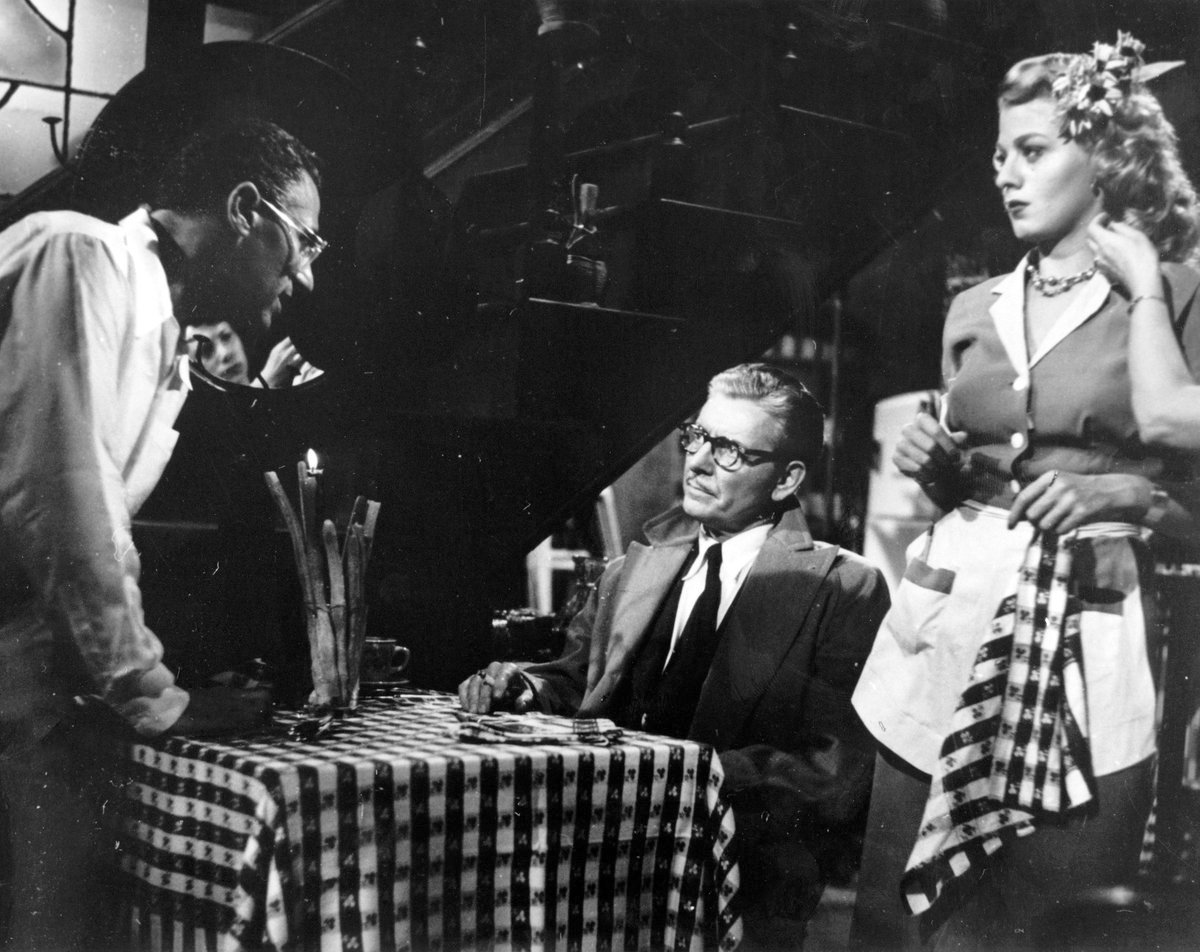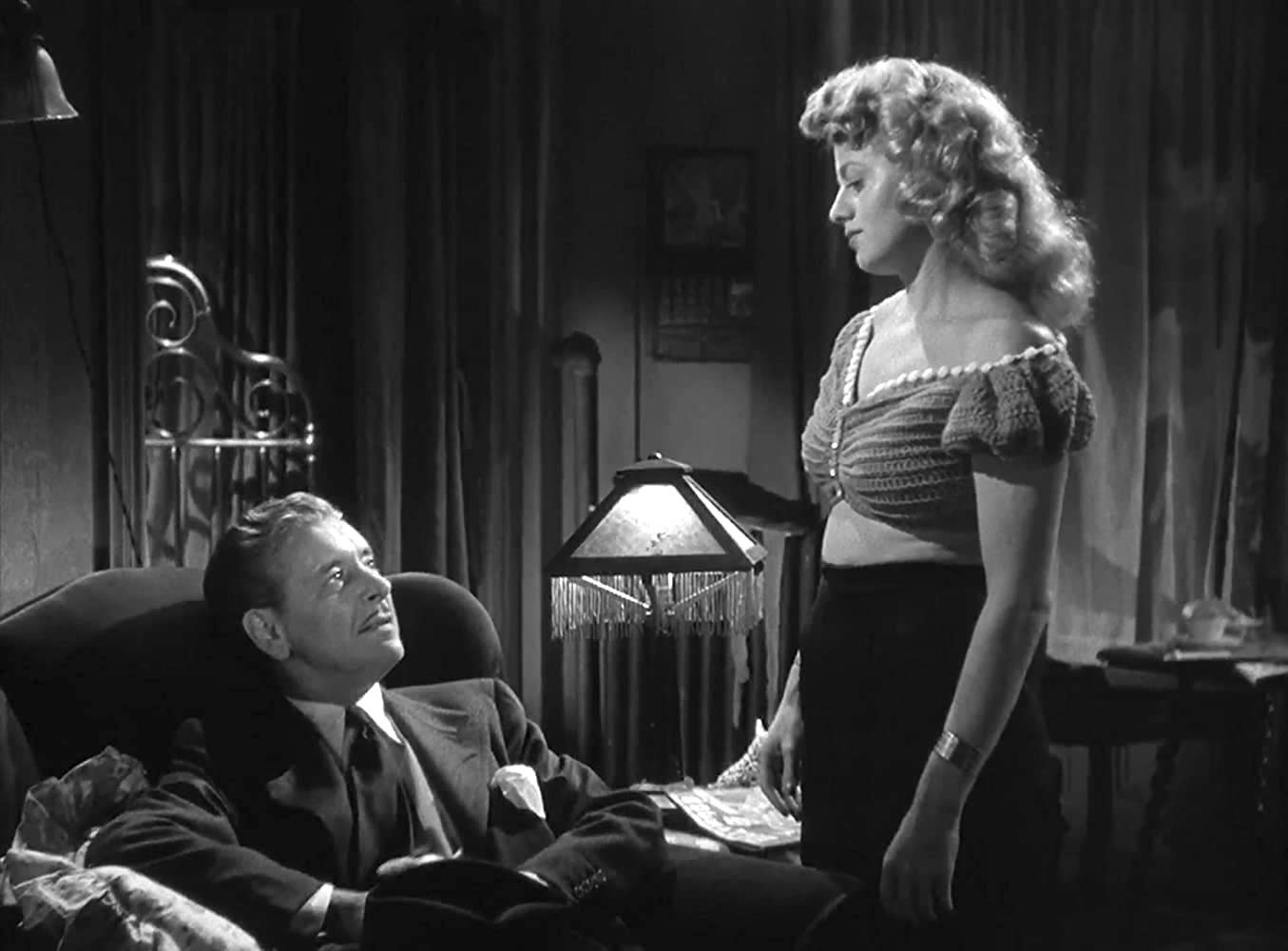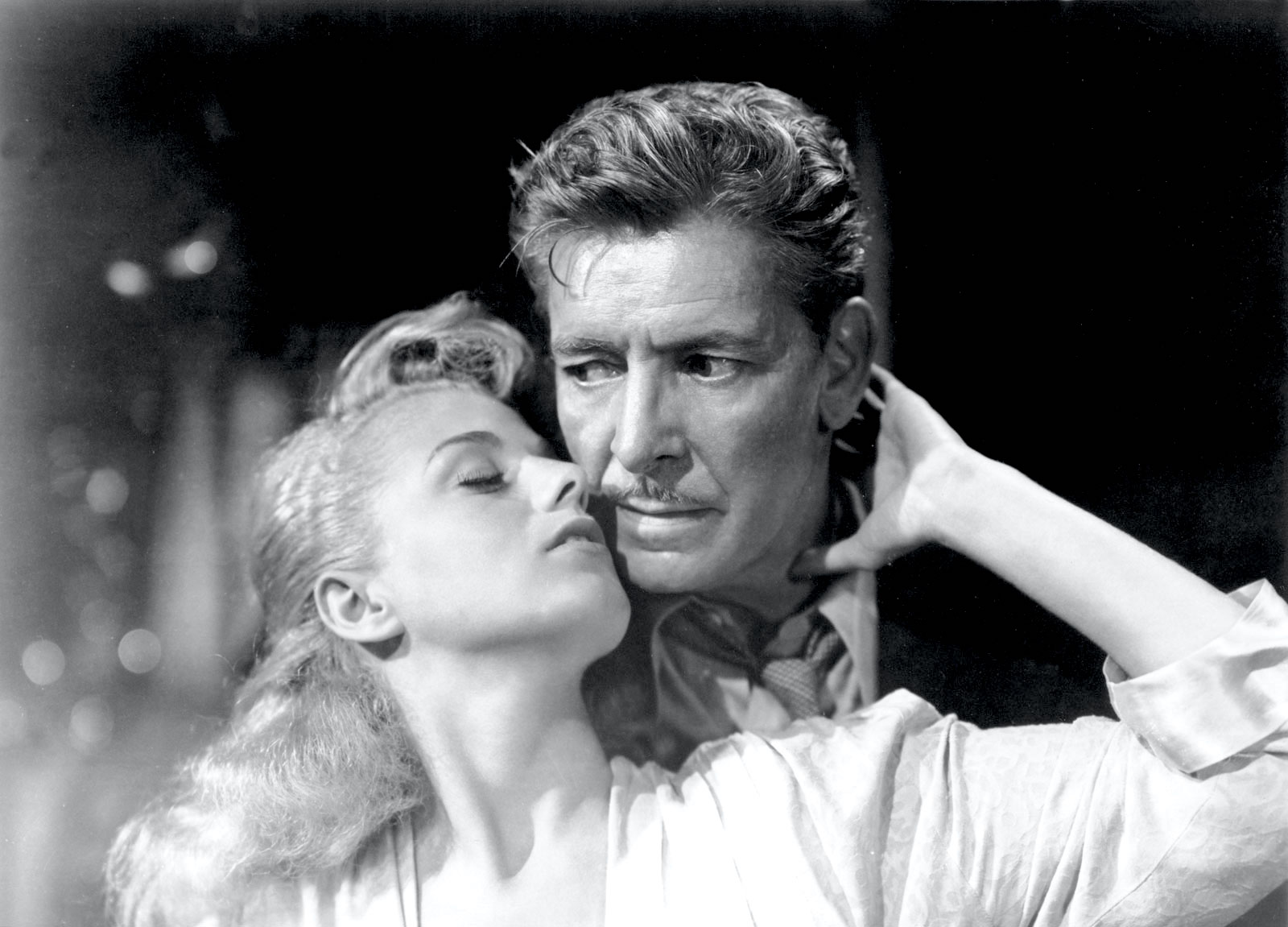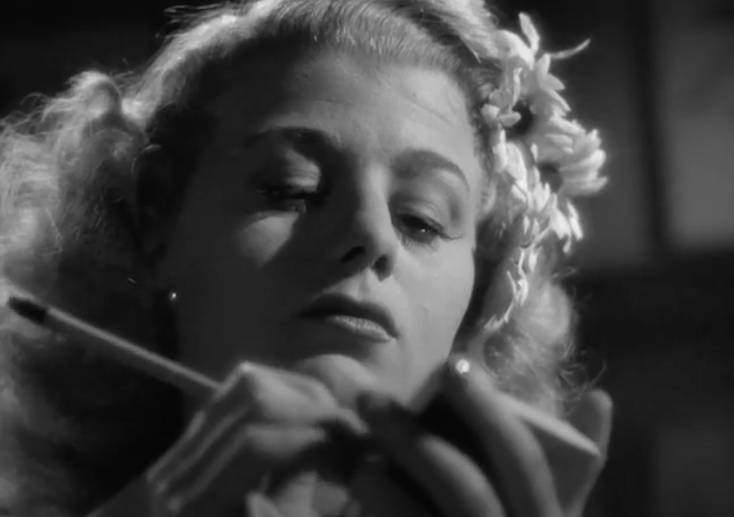We're celebrating the career of Shelley Winters for her Centennial. Here's Nathaniel R...
Shelley as a young starlet (1943) and as a prestigious character actress (1968)
Shirley Schrift had been kicking around showbiz for eight years before the needle moved. At just 19 years of age, before she had any real professional credits, she auditioned for Scarlett O'Hara (like virtually every aspiring actress of the time) during the famed nationwide search. Director George Cukor himself (the initial director of Gone With the Wind) advised her to get acting lessons. She did and her work ethic and ambition paid off. Broadway roles followed and Hollywood soon after. The first years of her movie career were mostly filled with uncredited bits in Columbia and MGM pictures. With studio jobs came the usual tinkering with persona starting with a stage name. Shirley became Shelley and the Schrift became Winter and then Winters. Though some screen icons were given the instant star treatment, Winters career was closer to the norm of working actors in studio-era Hollywood. You were just one of thousands of faces but if you were lucky, charismatic, talented, or if executives took an interest (all four was naturally ideal), they'd work carefully on your image and groom you for larger roles.
At twenty-six the actress's luck changed suddenly -- as it does if it changes at all -- with two roles that launched her to stardom...
 on the set of A Double Life from left to right: Cukor, Colman, and young Shelley
on the set of A Double Life from left to right: Cukor, Colman, and young Shelley
First came a well received comic turn in a hit Broadway show ("Ado Annie" in Oklahoma!) immediately followed by her fourth credited film role in A Double Life. The prestigious but purple drama was directed by George Cukor, who'd given her that crucial heeded piece of advice when she was just a teenager. Her role is small -- just three scenes -- but the kind of showcase part hungry rising actors dream of but need to be amply prepared for. If you can hold the camera and seize the audience's imagination from the ensemble of a noteworthy project the future might well be yours.
This 1947 film details the rapidly unravelling psyche of an acclaimed actor (Ronald Colman in his Oscar winning role) starring in a production of Othello, against the limp protestations of his ex-wife and frequent co-star Brita (Swedish actress Signe Hasso). Brita knows how he gets when he acts in heavy dramas... heavy! On the angst-ridden night when he decides to take the doomed role the actor goes home with a lonely but very forward waitress played by Shelley Winters. Three hundred or so Broadway performances later, he reemerges at her door.

[SPOILER ALERT] She think it's a booty call and immediately lets him, offering lip service to being put out by his year-long ghosting. Winters clues you in that she's happy about this in a practical 'when you have an itch...' kind of way even if it's hardly romance. Unfortunately it isn't sex the crazed actor has on his mind; in fact, he's out of his mind altogether and still inside the headspace of that jealous violent Moor. RIP promiscuous waitress, but hello rising star.
In retrospect it's funny to think that Hollywood had been grooming a glamorous sexpot image for her when the future star was so obviously destined for grittier portraits of working class women. Even her name in A Double Life "Pat Kroll" lacks dreamy class, sounding instead like two blunt objects cohabitating. Not that the sexpot idea was unthinkable. Though pop culture memories of Winters are largely locked into her later gallery of blowsy, loud, stubborn, large older women, that relatably low carnality was always there. The two crucial roles from her early career both trade on just this; in A Double Life and A Place in the Sun (four years later, cementing her stardom for good) she is immediately bedded by the leading man who then cruelly ignores her for a long stretch of time before killing her. [/SPOILER]

In her introductory scene, Pat Kroll is just a curt bored waitress, but Winters direct playing ups the ante. Her demeanor changes immediately when she realizes she has a VIP customer. The change isn't drastic -- she's still kind of a rude server -- but she leans in a little closer, invading his personal space and dropping an open invitation to, essentially, come up and see her some time. It's as frank as Mae West without the style. In lesser hands the role of Pat Kroll might have been particularly flat, a semi-anonymous doomed floozy, but it's Winters honest no frills work that really sells it. If she weren't so memorable in her first two scenes as she serves and then seduces the famous actor, her fate wouldn't land as hard as it does.
After she's left the picture, you realize how important the success of her brief performance was to the narrative. Late in the picture people are interviewed about her and an attempt is made to recreate her look (long story). Without quite realizing it, you know that it's absolutely plausible that people would remember her and make this connection. Cukor throws in an imagined insert shot of Winters to really sell the point. You don't just forget this woman.
 the final shot of Winters in "A Double Life"
the final shot of Winters in "A Double Life"
(And by extension, this actress)
The success of her performance in A Double Life reaped long-term rewards, even if this particular star journey was always bumpy. Universal signed her to a long term contract and Shelley Winters was on her way to a storied career that would result in a hundred more films and two Oscar wins, forty-plus TV roles and an Emmy, and two juicy tell-all autobiographies. (More tomorrow when we'll jump ahead to mid-career Shelley.)
A Double Life is available on YouTube
Thank you for attending TFE's Shelley Winters Centennial!
Nathaniel on The Starlet in A Double Life (1947)
Eric on The Pro in Lolita (1962)
Nathaniel on The Champ in A Patch of Blue (1965)
Claudio on The Actor's Actor Bloody Mama (1970)
Baby Clyde on The Old Crone Pete's Dragon (1977)
Glenn Dunks on The Memoirist "Shelley II" (1989)